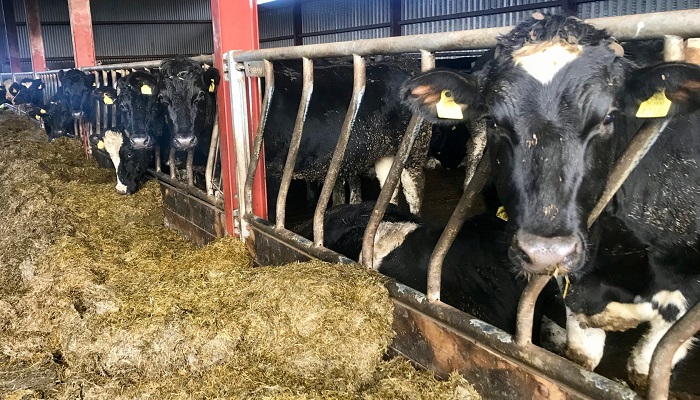16 August 2023
It has being a tricky grass year for Dairybeef 500 farmer Irvine Allen, but performance is good

Irvine is farming in Mount Temple just outside Moate in County Westmeath. He farms 58 hectares of land in 2 blocks and purchases 120 predominantly Friesian bull calves each year. Fergal Maguire, Teagasc DairyBeef 500 Advisor, tells us more on his farming year.
The majority of cattle on the farm are finished at two years of age, but about 20 of the lighter bullocks are let out for a third grazing season and finished at under 30 months.
So far, 2023 has being an extremely tricky grass year for DairyBeef 500 farmer Irvine Allen. Irvine had 70 yearling cattle out in February for a month, but they had to be housed again in March. They got out again in April but grass did run tight during the dry spell in May. Rainfall did arrive in mid-June, but since then it hasn’t stopped. The ground became sticky and the yearling cattle have now been split into three smaller bunches of 40 to reduce the amount of poaching. However, the performance of cattle is relatively good with an average daily gain (ADG) of 0.87kg since turnout. Usually the cattle that are finished at 30 months of age are finished off grass, but due to the wet conditions Irvine put them into the shed in mid July and they are now on 5kg/day of meal plus silage, with the target slaughter date being the 1st of September.
The calves are split into three groups: the strongest calves are off meal; the next heaviest batch are on 0.75kg of meal; and the lightest batch is on over 1.25kg of meal. Ideally the middle batch would be off meal by now, but with the constant rain Irvine feels that they still need it at the moment. Meal will be reintroduced to all calves by the middle of September. In May, three weeks after the calves were turned out, they got badly hit with an outbreak of coccidiosis. However, since calves were treated with a cocci dose, they are performing well. When Irvine last weighed the calves in late June, they were still an average of 119kg with an ADG gain since birth of 0.58kg. Irvine feels they have done well since their last weighing.
Traditionally, Irvine would have treated calves for worms with an ivormection based product three weeks after turnout and then dosed every five weeks after this – whether they were showing signs of a worm burden or not. Yearlings would have been treated at least once during the grazing season, depending on weather conditions. However, since joining the Teagasc DairyBeef 500 Campaign, Irvine has changed his dosing strategy. From the end of May Irvine, starts taking regular faecal egg samples to check the levels of stomach worm burden in all groups of stock. The results of these tests will determine when Irvine doses. This year, Irvine didn’t dose the calves until the first week in June and the yearling cattle wouldn’t have received their first dose until early July. Generally Irvine won’t dose until the FEC goes above 200epg.
The weather at the moment is making it tricky to get second-cut silage done. However, red clover silage was harvested three weeks ago and it yielded 5 bales/ac. The red clover was sown seven weeks previous to harvesting at a rate of 4kg of red clover, 1kg of white clover and 8kg of perineal ryegrass. At sowing it received three bags of 10-10-20, plus lime. Since harvesting, it has received 2,500 gallons of slurry/ac.
Irvine Allen is one of 15 farmers enrolled in the Teagasc DairyBeef 500 Campaign.For more on the Teagasc DairyBeef 500 Campaign, click here.
